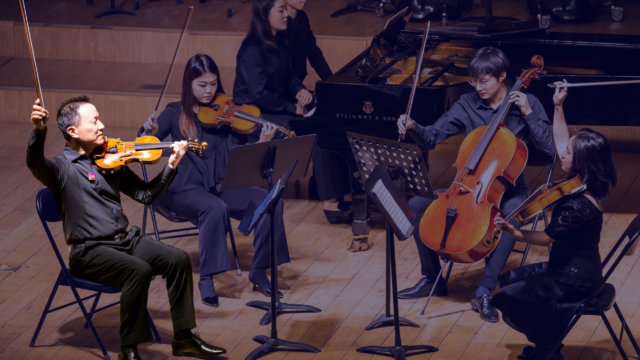Prelude and Table of Contents: Spring 2019
When the federal government closed over the holiday season, something extraordinary happened—and it wasn’t that this shutdown turned out to be the longest in the country’s history. What’s remarkable is that orchestras across the country immediately started offering free tickets to furloughed federal employees. (See story on page 56.) Free tickets were available not only for concerts during the shutdown itself; some orchestras offered tickets to pretty much any concert through the end of the current season.
Orchestras have been upping their public-service game in recent years. In the wake of Hurricane Harvey in 2017, the Houston Symphony, Houston Youth Symphony, and Houston’s Mercury ensemble hosted fundraisers for residents, replaced ruined instruments for music students, and gave pop-up concerts in shelters. And they did this while their offices and concert halls were damaged, and their musicians were displaced. Not all of these efforts are close to home: The Philadelphia Orchestra partnered with other Philadelphia arts group to raise thousands for relief efforts in Puerto Rico following the devastation of Hurricane Maria.
These actions reflect expansive new definitions of community engagement that embrace the urgency of taking action right here, right now. Provocative questions emerge: How do orchestras fit in society? How should orchestras fit in society? What is the shared value of art, of orchestras? Can—and should—orchestras address issues of social justice? The League and growing numbers of orchestras are working to welcome underrepresented communities, to program more music by women composers, to raise the numbers of black and Latinx musicians. All of it points to social justice as an increasingly vital concern at orchestras.
Robert Sandla
Table of Contents
- The Score
- Critical Questions – by Jesse Rosen
- Board Room
- Conference Preview – by John-Morgan Bush
- Surround Sound – by Vivien Schweitzer
- Start Spreading the News – by Susan Elliott
- Road Trips – by Keith Powers
- Summer Festivals 2019
- Community Service – by Nancy Malitz
- Annual Fund
- Coda
Become a member
Thank you for your interest in the League of American Orchestras! We are dedicated to advancing the orchestral experience for all.
Join Now